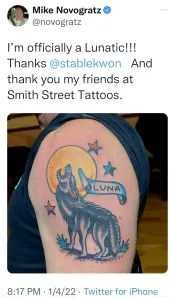Charles Hoskinson, the founder of Cardano, responded with a tweet boasting about how quickly the chain recovered from the catastrophic split, then accused the person of acting maliciously. "It was absolutely personal", Hoskinson wrote, adding that the person's public version of events was merely him "trying to walk it back because he knows the FBI is already involved". Hoskinson added, "There was a premeditated attack from a disgruntled [single pool operator] who spent months in the Fake Fred discord actively looking at ways to harm the brand and reputation of IOG. He targeted my personal pool and it resulted in disruption of the entire cardano network."
Hoskinson's decision to involve the FBI horrified some onlookers, including one other engineer at the company who publicly quit after the incident. They wrote, "I've fucked up pen testing in a major way once. I've seen my colleagues do the same. I didn't realize there was a risk of getting raided by the authorities because of that + saying mean things on the Internet."










